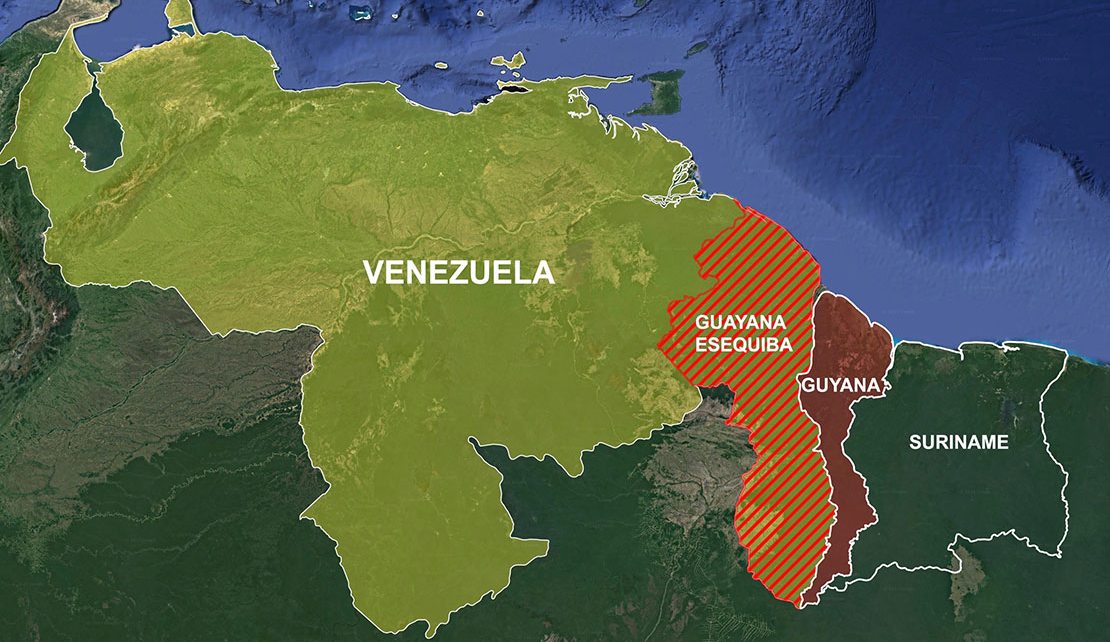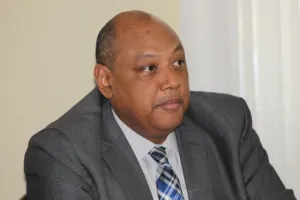GUYANA must intensify local, international efforts against Venezuela - says Trotman, Kirton

As Venezuela prepare to vote in early December on a question concerning Guyana’s 160,000-square-kilometre (62,000-square-mile) county of Essequibo, at least two International Relations experts are recommending intensified domestic, regional and international engagement.

“Guyana, therefore, has to prepare, organise and respond accordingly and appropriately. We can’t wait to see what they will do next. I believe we’ve doing a relatively good job, but things obviously have to be taken to a higher level. Some form of multi-party collaboration is one of the next necessary steps,” said Mr Trotman.
He is a graduate in International Relations (Security & Development Economics) from the Fletcher School of Law & Diplomacy at Tufts University, United States.
Though President Irfaan Ali and Opposition Leader Aubrey Norton had given their unequivocal support to each other on the border question, it is not clear when the bipartisan parliamentary foreign relations committee would meet or if the National Assembly would pass a resolution unanimously when the House meets for the first time after its two-month recess.
In Mr Trotman’s assessment, Venezuela is obviously unfolding a multi-pronged strategy – referendum, which he said stirs “hearts and minds,” the International Court of Justice, diplomacy, and “low intensity” operations along the border. “All these must have a culmination point and time. I suspect we will see something major within the next 18 months,” Mr Trotman forecasts.
Venezuela last week set December 3, 2023 for the referendum, days after the government and the opposition Unitary Platform signed an agreement in the sister Caribbean Community (CARICOM) member-state, Barbados, to ratify the historical, sovereign and inalienable rights of Venezuela on the territory of Guayana Esequiba and defend the full force of the 1966 Geneva Agreement as the legal instrument that commits the parties to such agreement to reach a practical settlement and mutually satisfactory of the territorial dispute, in accordance with the Law International.
They agreed to reject the “reject” what they described as Guyana’s unilateral actions in contravention of International law, related to the granting of energy exploration and exploitation concessions in maritime and sub-maritime areas pending the delimitation of the maritime boundary between the two countries and in areas that Spanish-speaking neighbour claims as its jurisdiction on the grounds that they are a natural projection of the continental territory continental.
Guyana has received wide-ranging international and regional support by the Organisation of American States, United States, Commonwealth of the United Kingdom and former British colonies, Brazil, and CARICOM for its territorial integrity and right to develop its resources.
Signed by among others President Nicolas Maduro, the accord also states that the government will make efforts to preserve Venezuela’s assets in the foreign affairs, as well as for the defense of the Venezuelan territorial integrity and national sovereignty.

Professor Mark Kirton.
Professor of International Relations, Mark Kirton noted that over the last two weeks, Venezuela has “ramped” up its aggression by planning a referendum, denouncing Guyana’s oil block bids.
He recommended that those acts be taken seriously and the public sensitised. Dr Kirton agreed with Guyana Defence Force (GDF) Chief-0f-Staff Brigadier Omar Khan that there was no need to be alarmed, but at the same time he asked that Guyanese “be kept in the loop”.
He stressed the need for Guyana to employ a “more robust” diplomatic engagement with neighbouring Brazil which has “the counterweight impact.” whose position is hinged on the principle of sanctity and inviolability of borders. “In a sense, what we need to have is a broad-based kind of approach where you have both local sensitisation and the development of stronger international and regional support,” he told Demerara Waves Online News.
He emphasised the need to also widen its diplomatic network to Colombia and other South American nations as part of an international support group to ensure Venezuela complies with an ICJ ruling that he expects would confirm that the 1899 Arbitral Tribunal Award is the full, perfect and final settlement of the land boundary with Guyana.
“It can’t be ad hoc. It has to be sustained to my mind. A unit in the Ministry of Foreign Affairs has to be established because Venezuela wouldn’t stop, to my mind, after a judgement is made and, therefore, compliance is a critical component in the post-judgment era,” he said.
Dr Kirton, a former International Relations Professor at the University of the West Indies (UWI) highlighted that Venezuela’s alliance with a number of CARICOM member states was not in Guyana’s best interest and so Georgetown should work hard to convince its sister countries in the regional bloc to sustain their solidarity.
“You are seeing, to my mind, Venezuela’s attempt to fragment the Caribbean, CARICOM, and, as you know ,there are some Small Island States in the Caribbean which are close based on PetroCaribe and the economic largesse that is handed out by Venezuela to some of the small states so we have to ensure we keep everybody on board and they stay on board in that diplomatic effort in the first instance,” he said. St Vincent and the Grenadines, Dominica, and Antigua and Barbuda enjoy extremely close ties with Venezuela.
Venezuela’s Ambassador to Guyana, Carlos Amador Pérez Silva last week informed the Guyana government, at its request for an explanation, that troop movement in Venezuela near the border with Guyana, was part of an operation to crush illegal gold mining. The Guyana government said it had nevertheless informed its regional and international partners.
Professor Kirton also advised Guyana to be wary about the implications of the arrival of “first migrants” from Venezuela. Vice President Bharrat Jagdeo last week said Guyana could not prevent Venezuelans of Guyanese parentage from settling here and would continue to facilitate easy cross-border movement of Indigenous Warrau Indians, but would expect Venezuelans with no ties to Guyana to eventually return to their homeland.
According to Professor Kirton, Guyana should engage the United Nations Refugee Agency, International Organisation for Migration to assist Guyana in screening the migrants to ensure no spies are coming to Guyana undercover. He acknowledged that the process “might be difficult but this is where our intelligence will have to be beefed up”.
